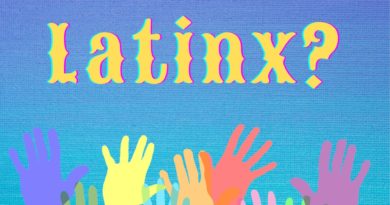Depth of opinion among Jewish community about zion-ism and Cal Poly Humboldt protest
Official communication from Cal Poly Humboldt about the initial campus closure condemned possible bigotry related to the protest.
“The University condemns in the strongest terms all forms of hatred, bigotry, and violence. Anti-Semitism, Islamophobia, hatred, and bigotry in all forms have no place at Cal Poly Humboldt,” reads the email in part.
Gabbi Kirk is an anti-Zionist Jewish assistant professor in the Department of Geography, Special, at Cal Poly Humboldt and has studied Palestine for 14 years. She has worked at a national Non-Governmental Organization to help college students organize for Palestine, and Kirk pursued research about sustainable agriculture in Palestine in graduate school.
Kirk stated that she did not notice antisemitic rhetoric or actions from protesters.
“As a Jewish faculty member who openly was Jewish the whole week I felt completely welcomed,” Kirk said.
She said that referencing antisemitism towards a protest against the conflict in Palestine erases the depth of opinion amongst Jewish people.
“A vague gesturing to antisemitism when pro-Palestine and Palestine solidarity is expressed is a major chilling effect. It is completely within our moral rights but also our political free speech rights to express solidarity with the Palestinian people,” Kirk said.
To her, having a cultural or spiritual connection to Israel is not a justification for the ongoing conflict in Palestine.
“That state violence is being enacted, that the state of Israel repeatedly uses the law and paramilitary force and military force to push Palestinians off of their land. None of those facts are in dispute, all of those are well-documented violations of international law.
There’s no moral or political justification for that,” said Kirk.
Kira Trinity is graduating this spring with a master’s degree in psychology at Cal Poly Humboldt. Trinity identifies as a “Zionist Jew” and has family that lives in Israel. Trinity said that the student protesters are “uneducated” about Israel and said that she has attended classes online out of fear for her safety on campus for identifying as a Zionist.
According to Trinity, Zionism refers to, “the right of the Jewish people to self-determination in our Indigenous homeland.”
Trinity said she would be fine with a protest against the far-right political party in Israel, but that she could not tolerate people calling for an end to the state of Israel. She instead advocates for “peace in the Middle East”.
“I’m so frustrated that I’m seeing cops ride in on horseback at other schools and just dragging people out, I would love to have seen that days ago…” Trinity said in an interview before the end of the protest.
Trinity also disagrees with protesters participating in Passover holidays like Shabbat hosted at the protest.
“I think it’s super inappropriate because these people don’t listen to people who identify with Israel, and Israel is a core tenet of Judaism. You can’t separate us. Those people are just confused. If they hate Israel then they hate their Jewish faith. And anybody that wants to destroy Israel and celebrate Judaism as a costume is culturally appropriating.” Jasmine Jolly is an anti-Zionist Jewish student who helped host a Seder on April 29, the day of the large police action on campus. The ceremony took place on the blocked LK Wood BLVD outside of the campus. To Jolly, Zionism and supporting the state of Israel are incompatible with her Jewish values.
She said she feels no connection to the state of Israel outside of the stories told in her faith.
“I feel a much deeper connection to communities that we are able to build because we are people who have been historically exiled and our strength is our community building, and our collaboration, and our ability to be interconnected with people,” said Jolly.
“I feel that Judaism teaches me how to ask questions, a lot of questions,” Jolly said. “And it teaches me how to be thoughtful about the value of human life. And that is something that I know extraordinarily deeply. That is why I feel so strongly for showing up for Palestine now.”
Rabbi Naomi Steinberg, who has been a Rabbi at Temple Beth El in Eureka for thirty years, shared a public letter with El Leñador about pro-Palestinian protests, antisemitism, and criticism of the state of Israel.
“At this dire moment in history, we state unambiguously that we do not consider it antisemitic to call for humanitarian support for civilians, cease-fire, Palestinian statehood, or to criticize actions of the Israeli government.”




